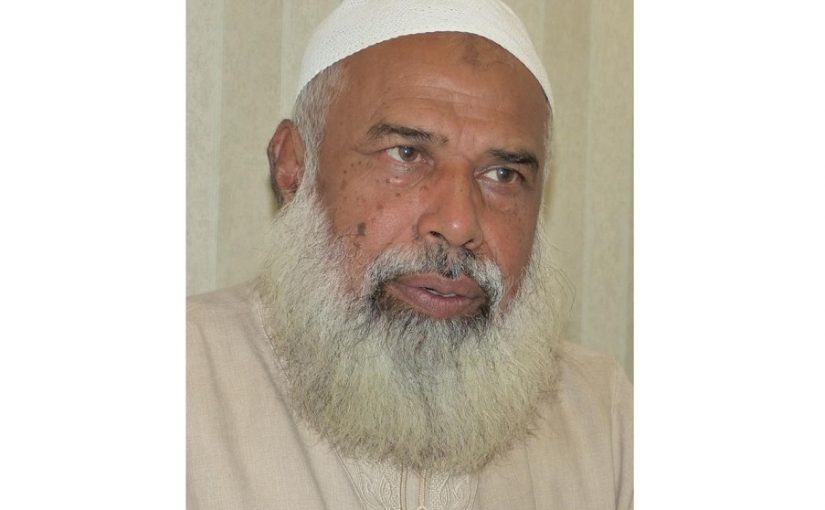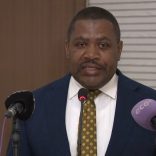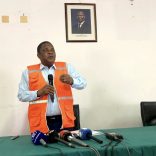Mozambique: Attorney General proposes freezing bank accounts of kidnap victims - O País
Mozambique: President of Islamic Council wants new mosques monitored for radical infiltration

File photo: DW
The president of the Islamic Council of Mozambique (CISLAMO) on Friday called for “close monitoring of the proliferation of mosques” and Islamic associations created without the knowledge of the authorities, warning of the “infiltration” of the country by preachers who spread radicalism.
In an interview with Lusa, Aminudin Muhammad said that he had been alerted to the proliferation of mosques that are not known to the Mozambique’s government or to any established Islamic association.
Also read: Just in: Secret service requested mapping of Maputo mosques – report
Mozambique: Intention to map mosques falls poorly in Muslim community
The scrutiny of places of worship is important, he argued, in order to prevent the use of Islam by “strange people” who promote a “bad indoctrination of young people” as is happening in Cabo Delgado province, in the north of the country, where he said that the “authors of violence use Islam to create chaos”.
The religious leader argued that only mosques that are committed to the principles and values of Islam and the laws of the country can be authorised to oversee worship.
“When no attention is paid to what is happening in these new mosques created outside [the authorities’] control, it is easy for outsiders and people from outside the country with negative ideas of life in society to infiltrate,” he said.
He maintained that controls should be exercised over any religious faith because “danger can come from anywhere when religion is misrepresented”.
Aminudin Muhammad rejected the link between Islam and armed violence in Cabo Delgado, instead citing the interest in profiting from natural resources as a probable reason for the action of armed groups in the region.
“The majority of the victims of the war in Cabo Delgado are Muslim and there are many mosques destroyed,” he pointed out, adding that the insurgency “has nothing to do with Islam.”.
The CISLAMO president pointed to the fact that the start of the armed violence in Cabo Delgado coincided with the arrival in the region of multinationals planning natural gas projects in arguing that interest in natural resources is behind the conflict.
“We did not have instability in Cabo Delgado before the start of the natural gas projects, but now that the multinationals are there the situation has worsened,” he said.
He argued that those fomenting armed violence in the north despise the principles and values of Islam – even entering mosques with shoes on, which violates the basic principles of the religion – as well as “mispronouncing the words and phrases typically linked” to the religion.
“Islam has been in Mozambique for centuries and has never been a cause of violence,” he said. “Islam in Mozambique has always promoted concord with other religions.”
The president of CISLAMO also ruled out suspicions that Koranic schools in Mozambique have played a role in radicalising young people in the north, stressing that “none of the young people who studied in madrasas in Mozambique and abroad are involved with strange people who sponsor violence.
“We have the record of students trained in madrasas inside and outside the country and we can guarantee that none has deviated from the path of goodness and truth,” he said.
The CISLAMO president recalled that Islamic associations in Mozambique had warned the authorities about the presence of worshippers “behaving strangely” in mosques before the violence began in 2017, but that those warnings “were ignored “.
In addition to his role in CISLAMO and as an advisor to the government, Aminudin Muhammad is among the country’s best-known Koranic scholars, penning newspaper columns in which he interprets precepts from the holy book and taking part in radio and television programmes that discuss the subject.
The armed violence in Cabo Delgado began more than three years ago but escalated again several weeks ago when armed groups for the first time attacked the town of Palma, a district capital near the border with Tanzania that is also some six kilometres from a huge natural gas complex.
The attacks claimed dozens of lives and forced thousands of residents of Palma to flee, worsening a humanitarian crisis that over the past three years and more has seen at least 2,500 people killed and more than 700,000 displaced.













Leave a Reply
Be the First to Comment!
You must be logged in to post a comment.
You must be logged in to post a comment.